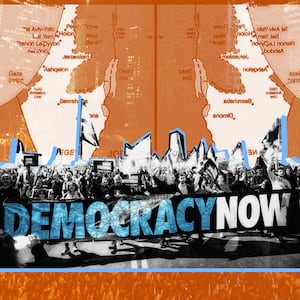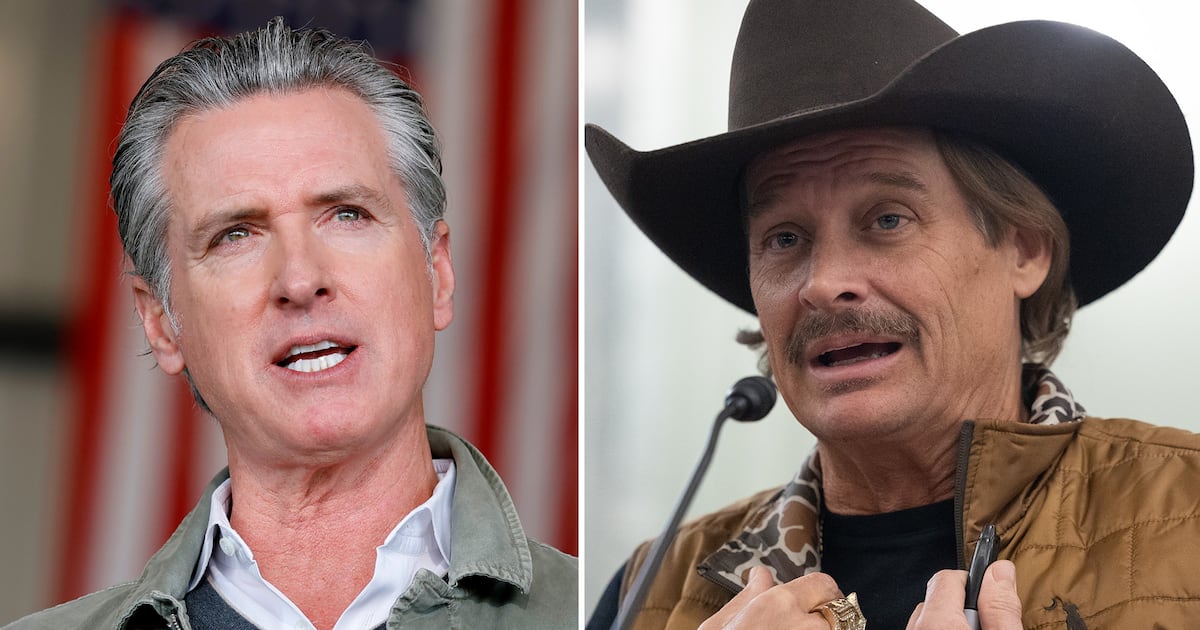Israel broils amid an existential political crisis. Efforts to overhaul the judiciary, pushed by Prime Minister Benjamin Netanyahu and his allies, have left the country on edge. Efforts to subordinate the judiciary to the Knesset have evoked harsh criticism within Israel and abroad. Week after week, hundreds of thousands have gathered to protest against the government’s proposed legislation. But on Sunday things quickly got real.
First, Joe Biden weighed in and stressed to Israel’s leaders that “an independent judiciary” was an essential element of a democracy, and that forging a “consensus” was the only way to go about systemic change.
Later that night, Isaac Herzog, Israel’s mostly ceremonial president, also sounded a klaxon. In a televised speech, he described Israel as standing “on the brink of constitutional and social collapse.” His warning was stark. “I feel, we all feel, that we are in the moment before a clash, even a violent clash,” Herzog announced. “The gunpowder barrel is about to explode.”
Practically speaking, he called for a freeze in the legislative process to enable both sides to climb down and hammer out a compromise. But the fault lines are stark, bordering on indelible. The fight is about more than just the courts. It is organic. Roughly speaking, this battle pits Israel’s ascendant religious but less affluent population against the country’s better-educated, wealthier, and predominately Ashkenazic citizens.
Less than 24 hours after Herzog’s speech, on Monday, more than 100,000 people thronged Jerusalem to demonstrate their opposition as the Knesset, Israel’s parliament, began to move the legislation forward. Across the country, thousands went on strike, crowded trains, and made their voices heard.
Think of the Women’s March the day after Donald Trump’s inauguration, but filled with combat veterans and a lot of men. Broadly speaking, the protesters are predominately from the ranks of the country’s makers, to borrow a phrase from Mitt Romney’s 2012 campaign. In Israel’s last election, they formed the Jewish nucleus of voters opposed to Netanyahu’s return. They are markedly bourgeois and decidedly, but not exclusively, secular. In the aggregate, they are protesting against naked majoritarianism and perceived injury to the rule of law. Those protesting veterans see themselves as having fought for their country and its ideals.
They are hi-tech moms and suburban dads. Their children serve in the military and have turned Tel Aviv into a playground that never sleeps. They pay taxes and helped turn Israel into Start-Up Nation, a go-to destination for foreign investment.
None of this went unnoticed by proponents of the overhaul. David Amsalem, a Knesset member and Netanyahu backer, scathingly attacked the protesters for how they ostensibly lived, the jewelry they may have worn, and the cars they supposedly drove.
“It’s true that most of us work at your houses and clean your gardens,” Amsalem inveighed. “I saw at the protest many shiny things, I later understood it was the Rolex watches of the protesters there. Look how many Mercedes cars there are there.” (Amsalem apparently forget that just days earlier he was captured on camera wearing a Cartier Ballon Bleu watch that retails for more than $7,000.) By background, Amsalem is the son of Moroccan immigrants, a product of a religious high school and a graduate of Bar-Ilan University. He too served in the military as a tank commander.
Amsalem also had nothing to say about the prime minister’s ongoing bribery and corruption trial. So much for those lines about living in glass houses and casting stones. And to be sure, for Netanyahu and Aryeh Deri—the twice-convicted would-be interior minister and Netanyahu ally—it is about keeping power and/or avoiding prison: “My kingdom for a horse.”
The financial markets seem to be wary of Bibi’s judicial inferno. In recent days, investors are balking. The shekel has lost ground to the dollar and interest rates rose. Inflation fears made the headlines as Lawrence Summers, the former U.S. treasury secretary, counseled against an abrupt restructuring of the country’s legal system.
Meanwhile, Israelis are looking to stash their cash overseas, following in the footsteps of several tech companies, according to a report in Israeli daily Yedioth Ahronoth. To be sure, the moves are more symbolic than substantive, but they spell distrust and discontent.
Yet Netanyahu’s political base is OK with less affluence if the trade-off means greater communal autonomy on the government’s dime and more individual conformity. The amalgam of blood, soil, and religion possess a potent appeal. Last week, Deri sought to prohibit women decked in prayer shawls from worshipping at the Western Wall. Although Netanyahu immediately squashed the move, the message was unmistakable: Public deviation from Orthodox Jewish norms would not be countenanced.
Like Britain’s Nigel Farage, Hungary’s Viktor Orban, and Donald Trump’s GOP, Israel’s right is willing to stick it to Western liberalism. But lost in the din is reality: It takes a lot of money and intellectual firepower for Israel to maintain its military edge. Plus there’s that thing called goodwill. Right now, all that looks less certain than ever.







